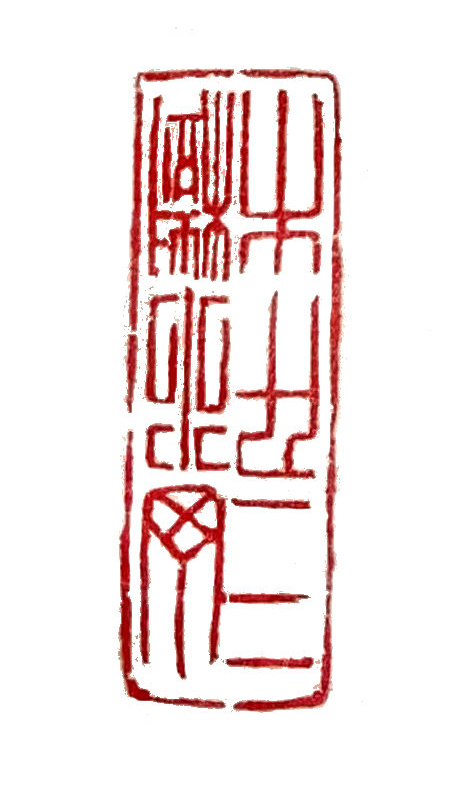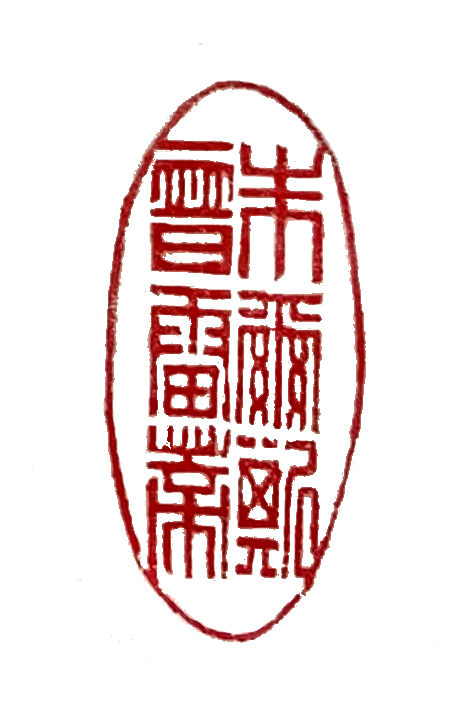“Then a whale swam up and protected his ship,
From the wind and the troll,
It seemed to have human eyes.”
The Saga of Ketil-Trout
The whales know so much.
They always do.
A pod waits offshore and sings. A humpback performs for twenty-three hours, the warbles and long mournful calls are heard a thousand miles away.
The same for blue and fin and sperm, each with sub-cultures and distinct dialects and song. Also travelling along the deep sound channels of the ocean.
Clicks, the silent spaces between them. Epic poetry, repeated chorus sequence.
And screams too, over the centuries, more than a few.
“If it happens to us,” says the whale. “It’ll happen to you.”
This too. Orcas share all the time. An adult catches a salmon, snips it up and shares the pieces with her family. They will sneak up and drag sea lions from a beach, through the crashing waves. Then gather round when a ranger steps into the sea and plays his harmonica.
In the mid-1950s, it was believed Orcas were the cause of carnage, herring numbers had been falling so fast. In the records of US Naval manoeuvres was found this: planes flying out of Keflavik in Iceland.
The report says: “We completed successful missions against killer whales, hundreds were destroyed with guns, rockets and depth charges.”
Yet on Iceland’s shore, a stranded whale means abundance and hope. It is called hvalreki, a windfall, an unexpected stroke of luck. Bells ring in the great sea-halls, light shines on the polar waves.
There she blows, call lookouts on the whaling ships.
There she blows.
One day recently, a diver cuts a humpback free from a fishing net and rope that tangled round her fins, across her mouth. She blinks slowly, motionless in the water as the whole noose is detached.
The nations of whale have come closer over recent years, the matriarchs able to grow old again. What magic is this. Whales old enough to recall the eras before plastic filled the seas, famed storytellers amongst the whale nations.
Now perhaps they can see the web is mending.
By the mid-1990s, former whalers and fishers say, “It’ll never happen.”
People, the public. They won’t pay.
They’ll never pay to watch a whale, those beasts full of oil and blubber and keratin and other products for the industrial complex.
It’s no surprise, for it took time for people to realise they should listen to the whale.
Ketil starts life as a coal-biter, an ash-boy they say in the Norse saga, building strength from an early age, lazing by the kitchen fire.
One night, he takes his axe. He’s had not gone far when he sees a mythic creature flying from a hill to the north. It has writhing coils, the tail of a snake, the wings of a dragon. People blink when he tells them about the beast, then turn away.
Yet Ketil is good at fishing for large trout, so his father calls him Ketil-Trout rather than Ketil-Dragon. At the winter fish camp, he amasses such a great catch that bigger men try to steal it. He knocks the one called Hæng overboard.
“You are eager for big fish,” says his father. “It seems the nickname suits you.”
He’s eleven years old at the time.
When a great famine comes upon their fields, the fish swim far rather than near. Ketil-Trout says:
“I shall go fishing, I will aid my neighbours.”
This is the time when giants and trolls are much in presence at those distant fish camps. One day Ketil-Trout saves the camp by chopping the head off Surtr the giant. Then comes a troll woman in a violent gale. He tries to escape by boat.
So it was that a whale with sad eyes swims up and places itself between his boat and the wind and monster. It seems to have a human gaze.
Ketil later says to the man called Bruni, he was chopping wood above the beach, “I think the power of magic caused that terrible wind. Yet it was the whale who calmed the ocean.”
There are other whales too.
One Sunday, Cat-Whale comes to a fishing boat, placing herself so near they could not put out their lines. The skipper says oh no, throw no spears, its fluke is bigger than their boat. It is safe to have it to rest beside us, we should let it be a cat in water.
Later that week, Bull Whale creates such a roar when blowing out his breath that a cow runs into the sea, she is never seen again. This is near a village port in the north of Iceland, and all the other cattle had to be kept indoors for days, as the Bull Whale kept on calling.
Redcomb swims around the whole isle in just two days, her teeth are long and sharp. The white beluga friends follow, they eat leftovers of her fishy prey. There is Barnacle Whale and his friend Ling-Back the Fin, as large as an island with heather patches, and the Sword-Whale who loves to race a boat.
The Blue Whale, the great protector of every boat, the Blue is their friend, they will gently swim around a boat, several times, and bring them home in a storm. It is such a blue with human eyes that comes to rescue Ketil-Trout.
And so there it is, the whales today are back. They are singing from the Arctic waters.
These giants of ocean wave now can roll quite safely with their infants.
The harbour water is somewhat calm. The open-decked oak trawler plunges east. It is cast up high and races down the iron waves, then simply ploughs ahead. It is in the sky, then down so low. A sleet of cold froth pours over the prow, white and radiant. To the north, there are dark clouds over the Westfjords.
The sea is black, metallic blue and green, slate and slushy brown. The wind tears away the water, and still the search continues. Eyes are pinned, legs bent, absorbing each shuddered thump. The shore is sheer cliff and long waterfall on the strip between the sea and sky.
People point, for a line of blue sky has appeared. It moves across the sky. All the clouds clear. Now green bubbles from the boat crush outwards. The ship pauses, wallows, and yaws, and the captain says slowly on the tannoy, “At eleven o’clock.”
A sperm whale blows. A rainbow forms in air above the long brown body.
The snowy dome of Snæfellsjökull shines beyond this beast of fifty tonnes. The whale arches, and dives. The tail fluke rises and cuts into the water, the deepest diving mammal in all the seas. There comes another, in the glittering light, it wallows and huffs, tips its fluke.
The polar light sings on the sea, a forge of glittering fire, a magnesium surface burning bright. The bow wave rolls outwards, white droplets fall back to green again.
The whales, it seems, also have the power to gift us sun.
How would you describe a sea to someone who’d only ever held a glass of water? It is a hundred colours, black to silver and metal sheen, fiery and foam. It is mountains of solid water, cliff and crag and no safe path, it is effervescence into light and smoke. It is a bird that flies and floats, fulmar on a locked wing, puffin circling on the surface. It is frightful waves that seem only chop from far.
It is the polar light upon this sea. It is the sun that stumbles, and comes to fade as shadows travel north.
The boat comes gently to the harbour, the song of the sea has ceased. This middle world came close to saying goodbye to every whale. This day all the people are wind-beaten, wet and lifted up, salty by this polar shore.
Only death will dry your feet, the old folk say.
 Jules Pretty
Jules Pretty
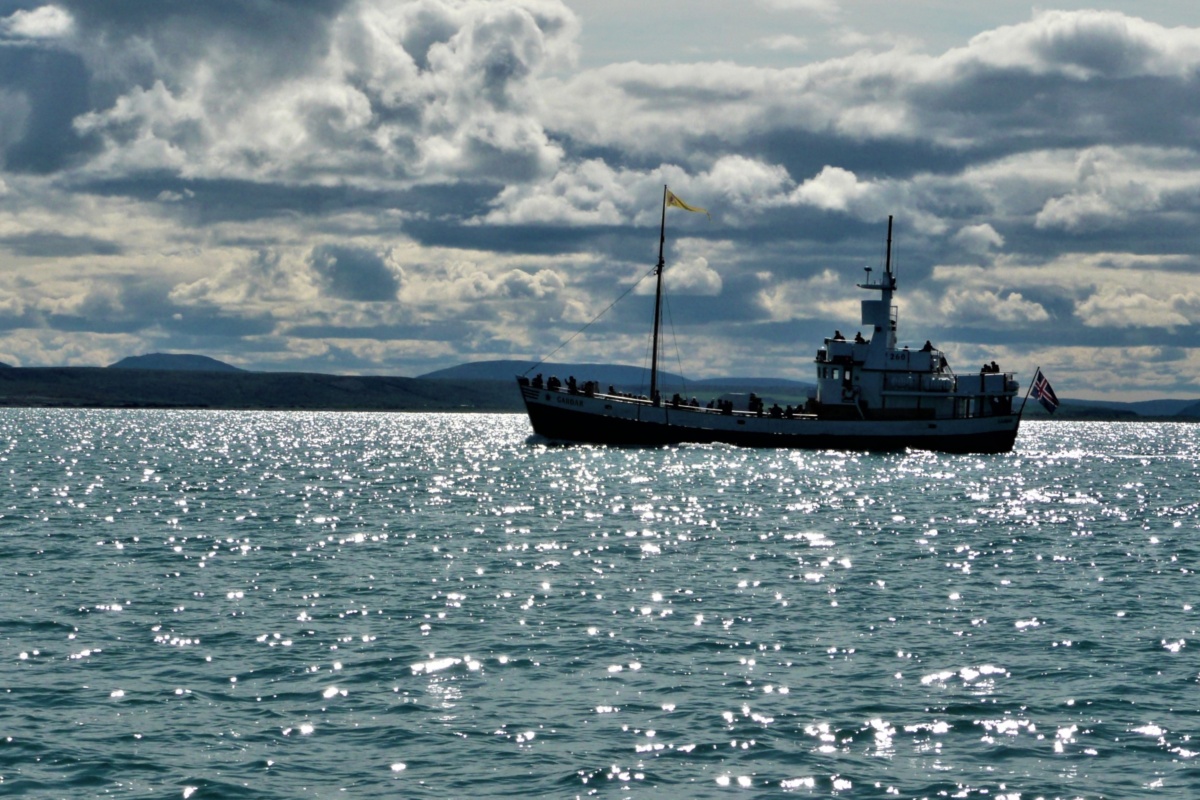
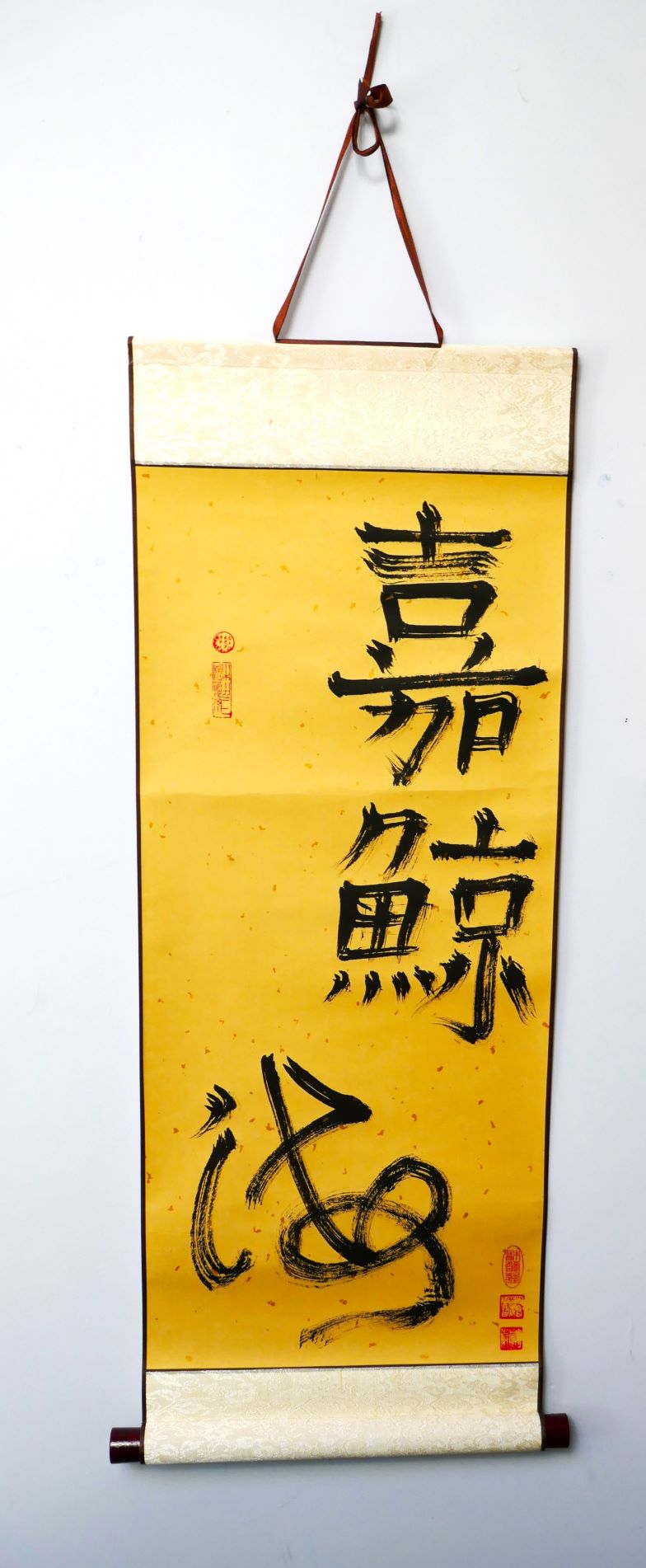
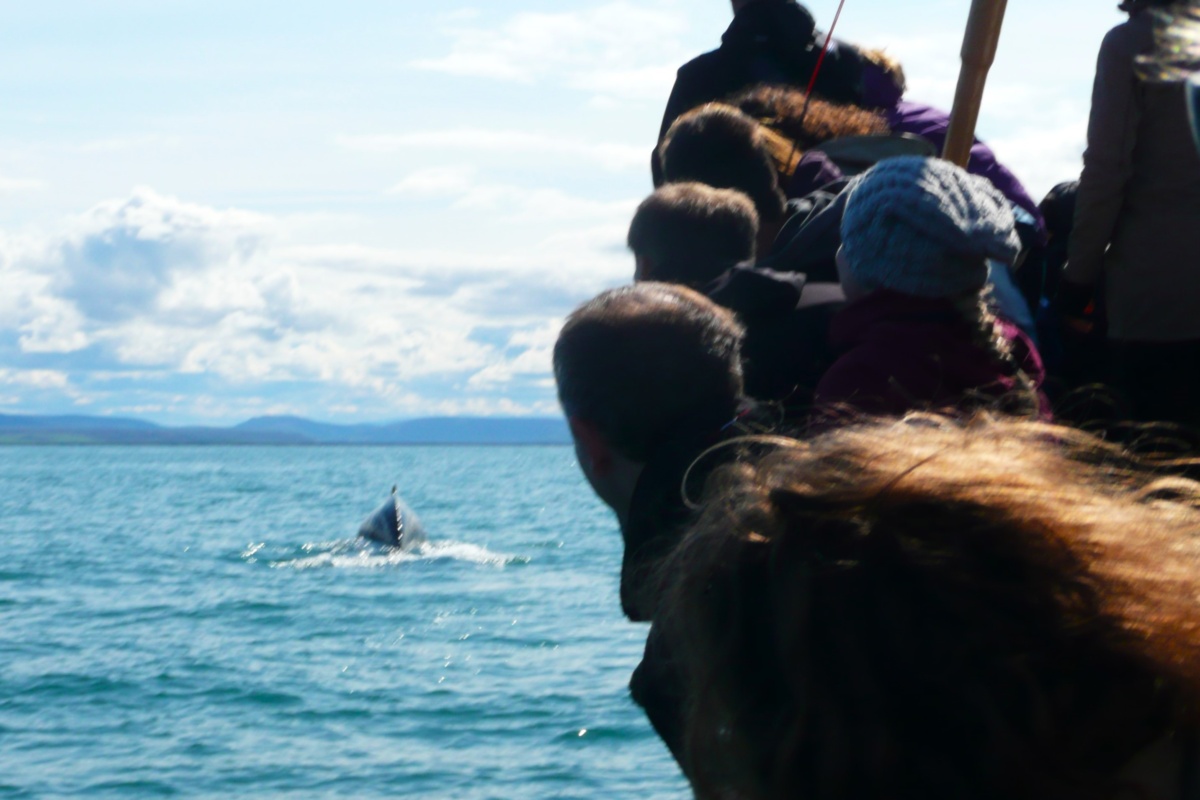
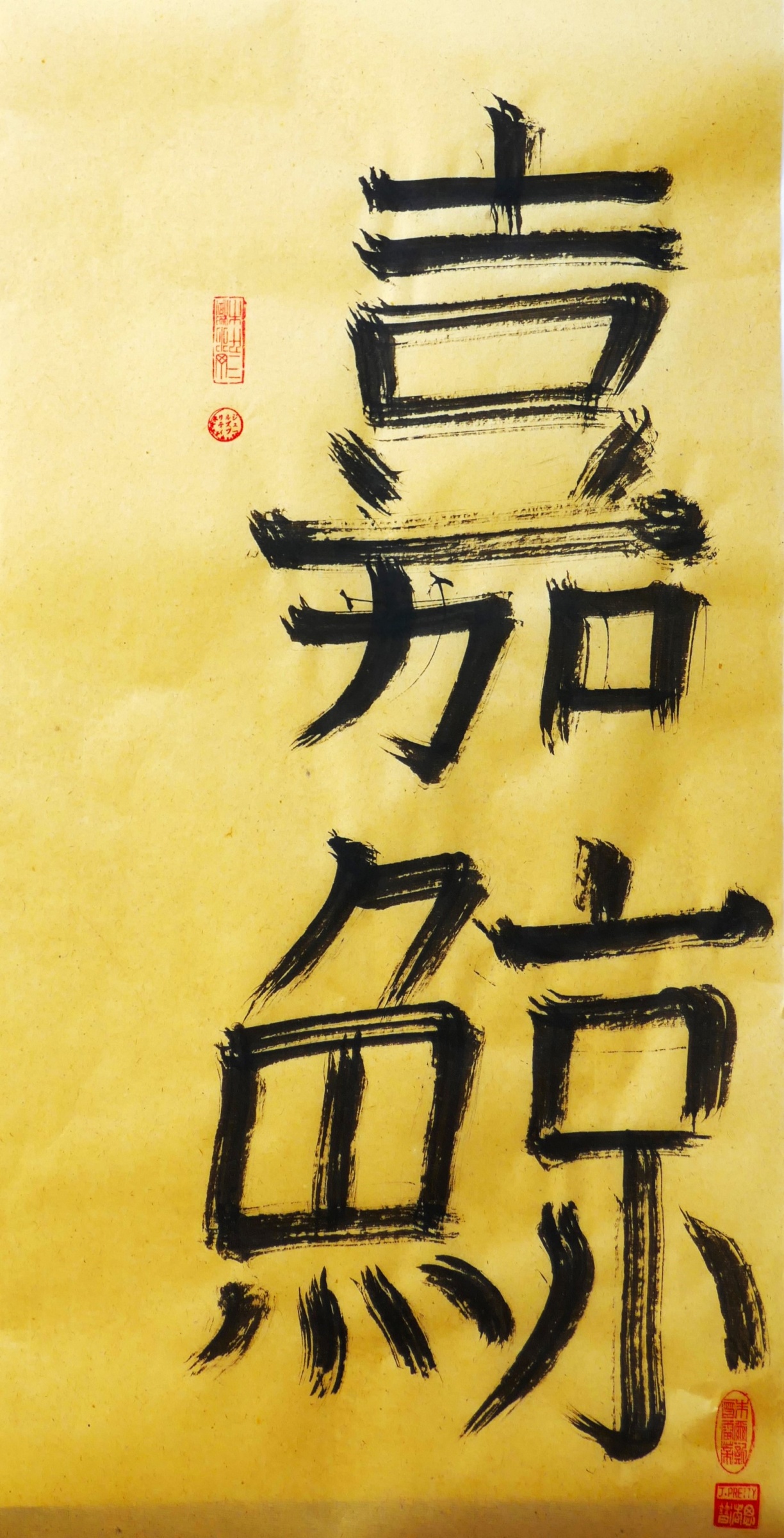 The whale needed saving. Hunting had reduced their numbers worldwide to about one million, down from five million. Some species became very rare. Extinction was a real possibility by the 1970s. In the 1980s, an international hunting ban was agreed. Some wriggled and wrung hands, exploiting loopholes.
The whale needed saving. Hunting had reduced their numbers worldwide to about one million, down from five million. Some species became very rare. Extinction was a real possibility by the 1970s. In the 1980s, an international hunting ban was agreed. Some wriggled and wrung hands, exploiting loopholes.